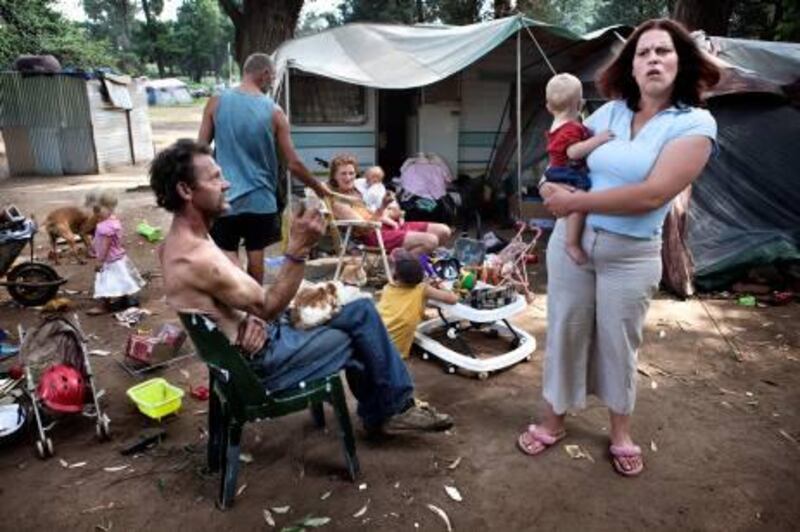A decision to give a group of homeless whites free houses under a process designed to benefit indigent blacks shows how much has changed since the fall of apartheid.
Last week local officials from Mogale City, west of Johannesburg, said they had accepted the names of 25 homeless whites for a state-financed home ownership scheme. Until now it had mostly been blacks who benefited from the programme.
Whites make up almost 10 per cent of the country's population, or 4.5 million people. While most are regarded as comfortably middle class, the sight of whites begging at traffic lights in the cities has become common. At least 450,000 are indigent, charity groups say.
Under apartheid, blacks were severely restricted in where they could own property and most were forced to rent government-owned "matchbox houses" - the two-room breeze-block structures that characterised black townships.
Until democracy in 1994, less than 13 per cent of the country's area was set aside for blacks.
Since then, the African National Congress (ANC) has introduced aggressive distribution of land and housing which, while deeply flawed, has tilted the racial balance of home ownership significantly.
Since 1994, more than 3 million houses have been built countrywide, mainly for poor blacks, figures from the think tank economists.co.za show.
But the programme has failed to keep up with the rapid pace of urbanisation. In Cape Town alone, about 600,000 people live in the corrugated iron and wood shacks surrounding the city, officials say. Nationally, the backlog is about 2 million houses, government figures show.
As a result, competition for houses among the poor is fierce, which has made it difficult for poor whites to secure state funding. Some 430,000 whites now live in shacks, according to Solidarity, a trade union that represents white blue-collar workers.
Local officials are now trying to address their plight but are having a tough time convincing black housing activists that whites can also be eligible for state housing.
"What about [black] grannies who have registered and have been overlooked?" Luyanda Njomane, the secretary general of the Kagiso Civic Organisation where the homeless whites will be relocated, told a Sowetan newspaper. "Honestly, we will mobilise".
Officials can take some comfort in signs that the number of blacks who own their own homes has increased significantly. A third now own a second property that is usually rented out for income, according to a study by economists.co.za.
As more blacks enter the property market, especially as an investment, big business has also taken an interest. Banks that 15 years ago would not lend to blacks say their African client base is growing rapidly. Last year, blacks made up 42 per cent of mortgage applications.
If it had not been for the worldwide economic slowdown that began the year before, the figure would probably have been higher.
As well as the 3 million houses built by the state, another 1 million have been constructed by private financing. The ANC has also pledged to eliminate the backlog within the next few years, a goal that does not seem unattainable.
This may be why ANC officials are considering the politically risky move of setting aside housing for poor whites.
"We will continue to house all deserving communities of our city without prejudice because our country belongs to all who live in it, black and white," said Nkosana Zali, the spokesman for Mogale City municipality.
"We will not prioritise one community against another on the basis of race, religion or any other criterion, but based on needs."
* with agencies





